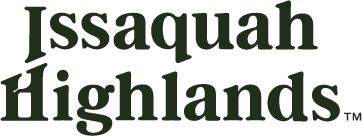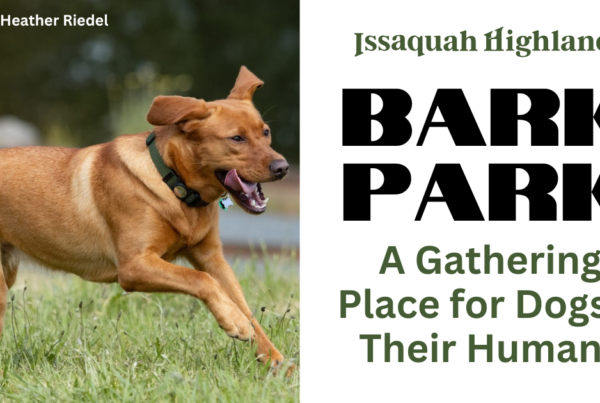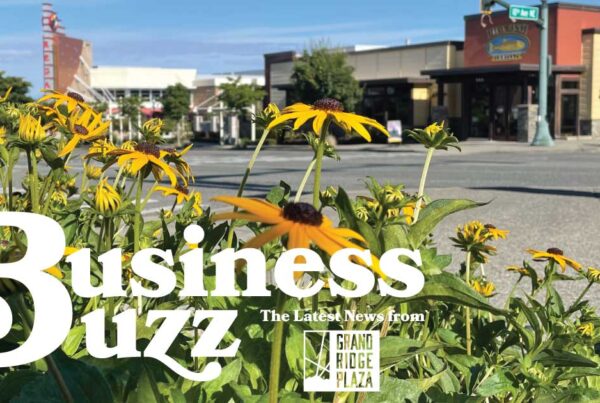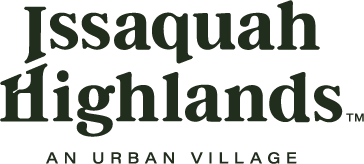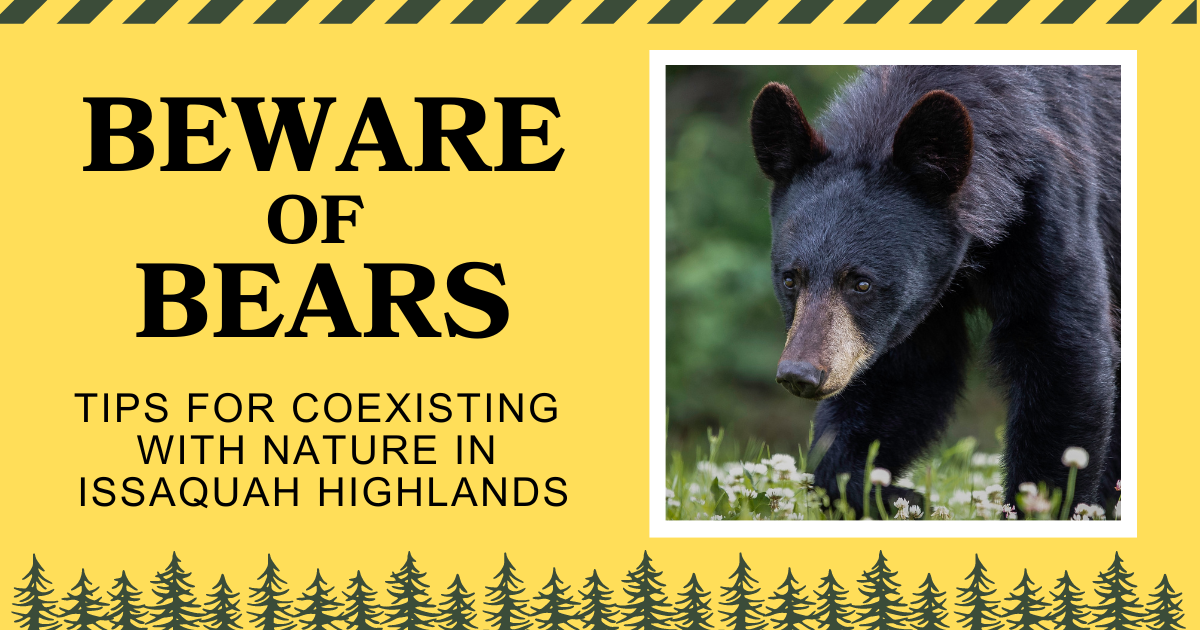
It’s bear season in Issaquah Highlands! While we have the privilege of living in close proximity to nature, being cautious of the wildlife around us is essential.
Among the diverse wildlife that calls this region home, bears are often seen around the community in the spring and summer months. Recent reports and neighborhood sightings of black bear activity serve as a reminder to take precautions to avoid potentially dangerous encounters.
While encounters with bears can be awe-inspiring, it’s essential for residents to understand how to coexist with these animals safely and responsibly. Bears are wild animals and should be treated as such.
Avoiding direct contact and giving them space is crucial. When walking or running in neighborhoods or parks, think about making noise to alert bears of your presence. This helps avoid surprising them and reduces the chance of a close encounter.
Bears are often attracted to residential areas by the availability of food sources. Secure your garbage cans, ensuring they are bear-proof and kept inside until the day of collection. IHCA requires residents to store any trash, recycling or yard waste containers inside a garage or ARC approved enclosure during non-pickup hours. Trash cans may only be placed at the curb/street 12 hours prior and 12 hours after pickup time.
Similarly, keep pet food indoors and do not leave any food scraps or leftovers outside. By eliminating potential food rewards, you reduce the likelihood of bears being drawn to your property.
The Washington Department of Fish and Wildlife (WDFW) offers the following tips to prevent conflicts between bears and humans:
- Never intentionally feed bears or other wild animals.
- Keep garbage cans in a garage or another secure area until collection day.
- Remove pet food from areas accessible to wildlife.
- Thoroughly clean barbecue grills after each use.
- Take down seed and hummingbird birdfeeders until winter.
- Clean up fallen fruit.
If you encounter a bear:
- Don’t run.
- Pick up small children.
- Stand tall, wave your arms above your head and shout.
- Do not approach the animal and be sure to leave an escape route for it.
- Try to get upwind of the bear so that it can identify you as a human and leave the area.
Do not approach or feed bears under any circumstances, as it can lead to habituation and create potentially dangerous situations for both humans and bears.
Two Washington state laws prohibit leaving food or food waste in places where it can attract bears and other wild carnivores. Unintentionally or “negligently” feeding bears can bring a fine of $87, while the fine for intentional feeding can be as much as $1,000.
If you spot a bear that represents a public safety concern, please call WDFW at 360-902-2936. You can also file a report online.
By following these tips and guidelines, we can successfully coexist with bears while ensuring safety for all. Let us continue to appreciate their presence from a safe distance, while respecting their natural habitat.
Carnivore Adventure
Stay busy this summer by completing the “Crossing Paths with Carnivores” scavenger hunt to learn about local wildlife and tips for staying safe when unexpected encounters occur. To get started, download the Geocaching Adventure Lab app by Groundspeak, Inc.
